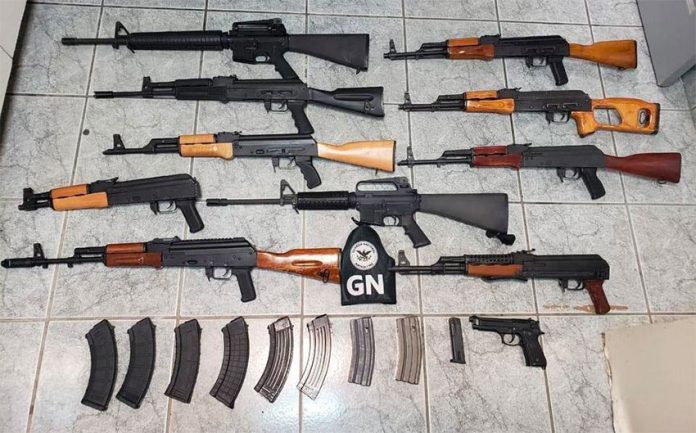A claim by the former United States ambassador to Mexico that the federal government rejected a U.S. offer of equipment to help control illegal arms trafficking is “a big lie,” according to a senior foreign affairs official.
Just days before he left his ambassadorial post due to the change of the United States government, Christopher Landau told a virtual press conference that the U.S. offered to donate “non-intrusive equipment to control arms trafficking on the border” but the Mexican government didn’t accept.
Fabián Medina, Foreign Minister Marcelo Ebrard’s chief of staff, refuted that claim this week.
At a seminar on arms trafficking on Wednesday, Medina portrayed the United States, not Mexico, as being uncooperative on the issue.
In addition to accusing Landau of being a liar, the official said the Mexican government had asked its United States counterpart to carry out operations on its side of the border to inspect vehicles coming to Mexico. However, there was no response from the U.S. government, Medina said.
He explained that Mexico inspects southbound vehicles in 13 border cities and wants the U.S. to do the same.
“We’re asking for the implementation of these kinds of operations … but unfortunately we haven’t had the response we hoped for from the United States authorities,” Medina said.
The official cited statistics that indicate that 70% of firearms seized in Mexico were made in the United States or imported here via the U.S.
(The Foreign Affairs Ministry said in 2019 that firearms from the United States are used in seven out of every 10 high-impact crimes committed in Mexico.)
Medina said that Mexico has no desire for the United States to change the second amendment of its constitution, which guarantees the right to bear arms, but does want improved regulation in the U.S. with relation to the sale of firearms.
At the same seminar, which was organized by the Mexican consulate in Tucson, Arizona, security expert Raul Benítez asserted that there is a lack of political will in the United States to address the arms trafficking issue. However, Mexico could find some sympathetic ears for its proposals among United States lawmakers caught up in the attack on the U.S. Capitol building on January 6, he said.
“In Mexico, our laws are tough but the application is lax,” the National Autonomous University academic said, adding that inspections at the northern border should be ramped up.
Javier Osorio, a professor in the School of Government and Public Policy at the University of Arizona, stressed that efforts to stop illegal arms trafficking must be bilateral.
“It’s not just the responsibility of Mexico to stop [weapons] once they’ve crossed the border. An important area of cooperation between Mexico and the United States could be the setting up checkpoints [on both sides of the border] … and increasing border controls,” he said.
“… This is politically, economically and socially delicate,” Osorio added. “We can’t create significant disruption at the border because it would affect the lives of millions of people who cross every day.”
Source: Reforma (sp)
